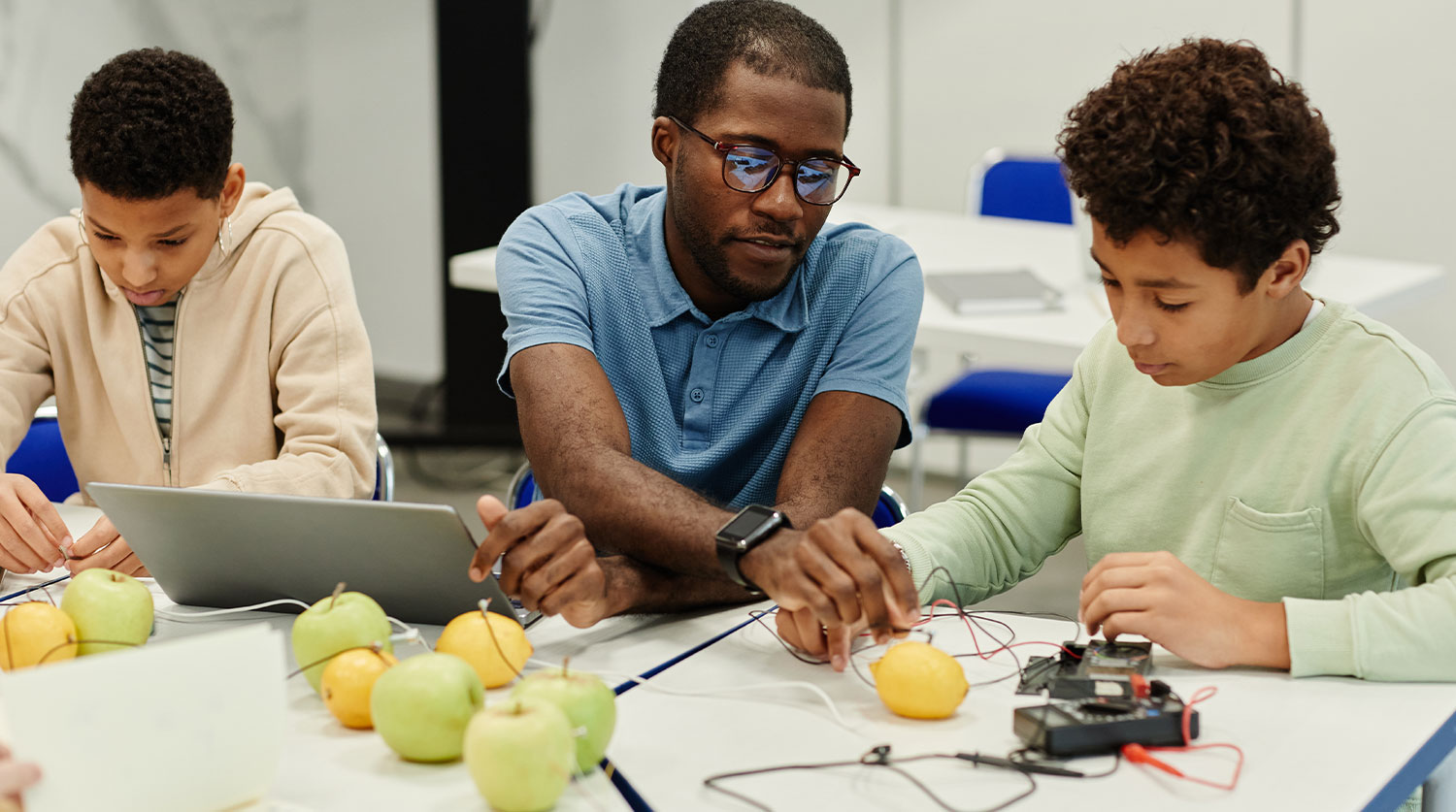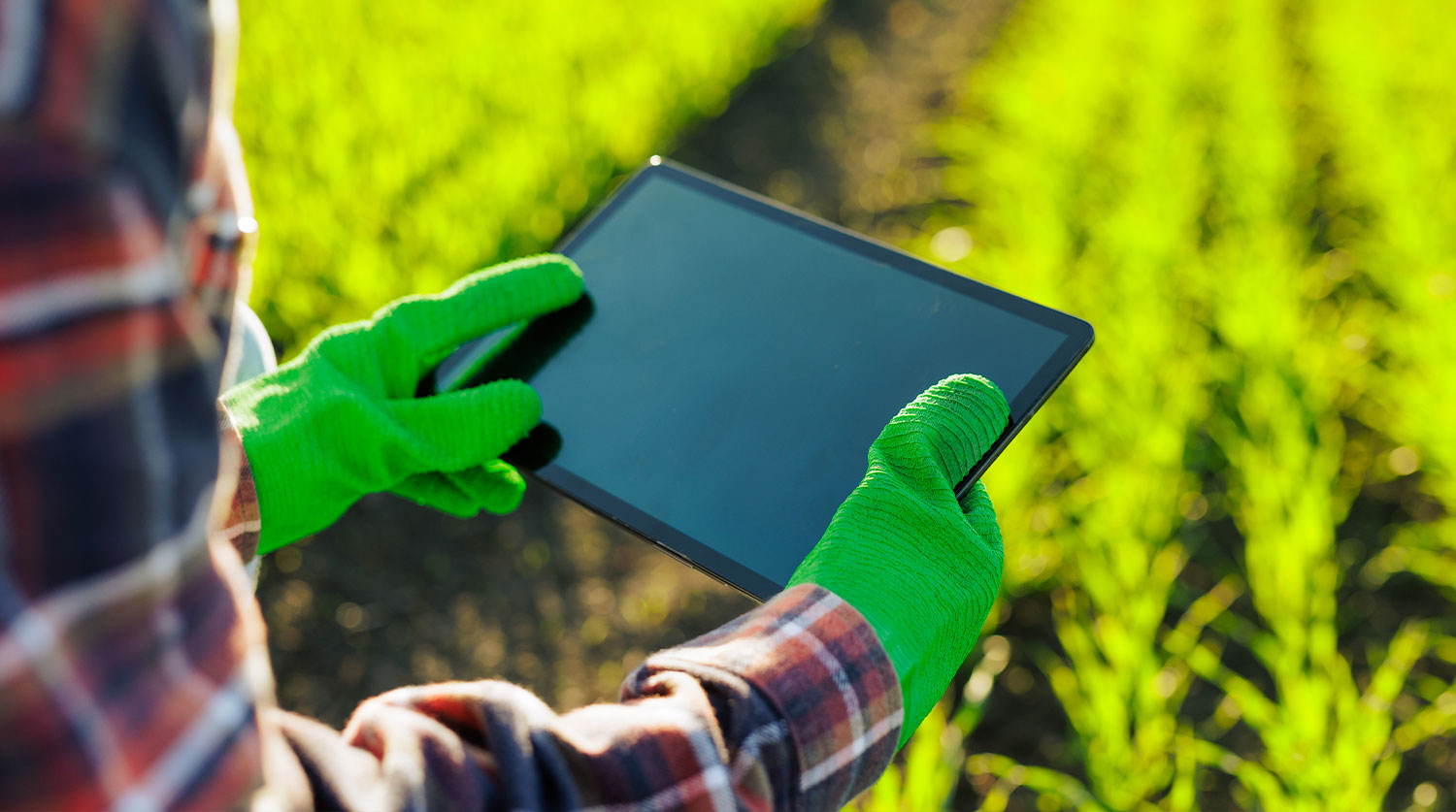Science
Science Fairs and Educational Programs in the U.S. Virgin Islands: Cultivating Future Innovators

The U.S. Virgin Islands is taking significant strides to foster scientific curiosity and innovation among its youth through various science fairs and educational programs. These initiatives are designed to inspire students, encourage critical thinking, and prepare them for future careers in science, technology, engineering, and mathematics (STEM) fields. The emphasis on hands-on learning and real-world applications in these programs helps to cultivate a new generation of problem solvers and innovators who can contribute to the community’s growth and development.
Prominent Science Fairs in the USVI
One of the most notable science events in the U.S. Virgin Islands is the annual St. Thomas-St. John District Science Fair, held in collaboration with the Virgin Islands Department of Education. This event brings together students from elementary through high school, showcasing their innovative projects across various scientific disciplines. Participants have the opportunity to present their research, demonstrate experiments, and explain the methodologies behind their findings. The fair not only recognizes outstanding achievements but also provides a platform for students to engage with local scientists and educators, further enriching their learning experience.
Similarly, the St. Croix District Science and Engineering Fair serves as a cornerstone event for young scientists on the island. This fair is particularly focused on encouraging interdisciplinary projects that span across engineering, environmental science, and biology. Students from public, private, and parochial schools participate, with winners often advancing to regional and national competitions, such as the International Science and Engineering Fair (ISEF). These opportunities allow students to compete on a larger stage and gain exposure to the global scientific community.
Educational Programs Supporting STEM Learning
Beyond science fairs, the U.S. Virgin Islands boasts a variety of educational programs aimed at enhancing STEM education. One such initiative is the Virgin Islands Next Generation Scholars (VINGS) program, which targets middle and high school students. VINGS provides students with access to advanced STEM curriculum, mentoring, and hands-on research opportunities. By partnering with local businesses and universities, the program ensures that students are exposed to the latest technological advancements and are prepared for higher education and STEM careers.
Another significant program is the University of the Virgin Islands’ (UVI) Summer Bridge Program, which is specifically designed to ease the transition from high school to college for students interested in STEM fields. This program offers an intensive curriculum in mathematics and science, alongside college readiness workshops. Participants in the program often enter university with a stronger foundation in STEM, leading to greater academic success and retention rates.
Additionally, UVI’s Research and Technology Park (RTPark) plays a crucial role in the region’s educational landscape. RTPark collaborates with local schools and colleges to offer internships, workshops, and research opportunities in cutting-edge fields such as renewable energy, biotechnology, and information technology. These initiatives provide students with practical experience and industry connections that are invaluable in today’s competitive job market.
The Role of Community and Government Support
The success of these science fairs and educational programs in the U.S. Virgin Islands is largely due to the strong support from the community and government. Local businesses often sponsor events and provide resources, while government agencies, including the Virgin Islands Department of Education and the Office of the Governor, actively promote STEM initiatives. This collaborative effort ensures that students have access to the tools and mentorship they need to succeed.
Parents and educators also play a vital role in nurturing students’ interest in science and technology. By encouraging participation in science fairs and supporting STEM education at home and in the classroom, they help to build a culture that values innovation and scientific inquiry.
Science fairs and educational programs in the U.S. Virgin Islands are more than just academic exercises; they are vital components of the territory’s efforts to build a future-ready workforce. Through these initiatives, the U.S. Virgin Islands is not only equipping its youth with the skills needed to excel in STEM fields but also inspiring them to become the innovators and leaders of tomorrow. As these programs continue to grow and evolve, they promise to make a lasting impact on the community and the broader world.
Science
USVI’s Contribution to Space Exploration Research

The U.S. Virgin Islands (USVI) is making noteworthy contributions to space exploration research, particularly through its unique astronomical resources and commitment to STEM education. The University of the Virgin Islands (UVI) plays a central role in these efforts, housing the Etelman Observatory on St. Thomas. This research facility, equipped with the Virgin Islands Robotic Telescope (VIRT), conducts vital astrophysical research, contributing to global efforts in space exploration and monitoring cosmic phenomena like gamma-ray bursts and gravitational waves.
In partnership with NASA, UVI also supports aerospace research through the Minority University Research and Education Program (MUREP). This initiative is focused on expanding research opportunities for minority-serving institutions, encouraging underrepresented students to pursue careers in science, technology, engineering, and mathematics (STEM). UVI’s programs offer students hands-on experience in space-related fields, enhancing both local and national research efforts.
Furthermore, UVI’s innovation initiatives, like the 13D Research & Strategy Innovation Center, serve as a hub for creativity and technological advancement. The center fosters collaboration between students, researchers, and entrepreneurs, promoting projects in various disciplines, including space exploration technologies. This support structure aids in developing the next generation of leaders in space and technology.
Through these efforts, the USVI is not only contributing to space research but is also empowering a diverse group of students to engage with and innovate in the aerospace sector. The region’s strategic location, advanced research facilities, and educational programs position it as a growing player in global space exploration efforts.
Science
Technological Advances in USVI Agriculture

The agricultural sector in the U.S. Virgin Islands (USVI) is experiencing a significant transformation through the adoption of modern technologies. These advancements are helping to increase productivity, promote sustainability, and support local farmers in overcoming the challenges of island farming. From smart farming tools to sustainable water management systems, technological innovations are revolutionizing the agricultural landscape in the Virgin Islands.
Smart Farming and Precision Agriculture
One of the most impactful technological advances in USVI agriculture is the rise of smart farming techniques and precision agriculture. Smart farming involves the use of Internet of Things (IoT) devices, drones, and sensors to monitor crop health, soil conditions, and weather patterns. These tools enable farmers to make data-driven decisions that optimize yield, reduce waste, and conserve resources.
For example, sensors can be used to measure soil moisture levels, allowing farmers to adjust irrigation systems only when necessary. This not only saves water, but also ensures crops receive the precise amount of hydration they need for healthy growth. Drones equipped with imaging technology can monitor large fields, detecting issues such as pest infestations or nutrient deficiencies early on, helping farmers take quick and targeted action.
Hydroponics and Aquaponics: Sustainable Farming Solutions
Another key technological development gaining traction in the USVI is the use of hydroponic and aquaponic farming systems. These soil-free growing methods are ideal for islands like the Virgin Islands, where arable land and freshwater resources are limited. Hydroponics involves growing plants in nutrient-rich water, while aquaponics integrates fish farming with hydroponics, creating a symbiotic environment where fish waste provides nutrients for plants.
These systems not only conserve water but also allow for higher yields in smaller spaces. Additionally, they reduce the need for chemical fertilizers, promoting more sustainable and environmentally friendly farming practices. The rise of local hydroponic farms is providing fresh, locally grown produce to the Virgin Islands’ residents, reducing dependency on imported goods and strengthening food security.
Solar-Powered Technology for Sustainable Agriculture
Renewable energy is playing an increasingly important role in USVI agriculture, with solar-powered technologies helping farmers reduce costs and enhance sustainability. Solar panels are being installed on farms to power irrigation systems, greenhouses, and refrigeration units. This shift to renewable energy not only reduces electricity costs but also contributes to the island’s goal of reducing carbon emissions.
Solar-powered water pumps, for instance, are particularly beneficial in the Virgin Islands, where access to consistent and affordable electricity can be challenging for rural farmers. These systems can operate independently of the electrical grid, ensuring that farmers can irrigate their crops even in remote areas.
Vertical Farming: Maximizing Space and Yield
With limited arable land available, vertical farming is becoming an attractive option for agricultural innovation in the Virgin Islands. This method involves growing crops in stacked layers, typically indoors, using controlled-environment agriculture technology. By optimizing space and controlling environmental factors such as light, humidity, and temperature, vertical farming allows for year-round production, maximizing crop yield.
Vertical farming operations are particularly useful in urban settings, where land availability is restricted. They also help reduce transportation costs and carbon footprints, as produce can be grown close to consumers, reducing the reliance on imported goods.
Technology-Driven Support for Local Farmers
In addition to these technological innovations, local government and private organizations are working to provide farmers in the USVI with the tools and knowledge they need to adopt these advances. Training programs, grants, and workshops are helping farmers integrate new technologies into their operations, ensuring they can remain competitive in a changing agricultural landscape.
Organizations such as the University of the Virgin Islands’ Cooperative Extension Service (UVI CES) are playing a pivotal role in educating local farmers on best practices for incorporating technology into their farms. By providing hands-on training and access to modern tools, these programs are helping to future-proof the agricultural industry in the Virgin Islands.
Technological advances are revolutionizing the agricultural sector in the U.S. Virgin Islands, helping farmers increase productivity, reduce environmental impact, and overcome the challenges of island farming. From smart farming techniques to sustainable energy solutions, these innovations are empowering local farmers to produce more efficiently while promoting long-term sustainability. As these technologies continue to evolve, the future of agriculture in the Virgin Islands looks brighter than ever.
By embracing these advancements, the USVI is paving the way for a more sustainable and resilient agricultural industry, ensuring food security and economic growth for years to come.
Science
The Role of the U.S. Virgin Islands in Global Climate Research

The U.S. Virgin Islands, a tropical paradise in the Caribbean, is increasingly recognized for its critical role in global climate research. Nestled between the Atlantic Ocean and the Caribbean Sea, this small island territory provides scientists with an exceptional natural laboratory to study climate change impacts on marine ecosystems, coastal resilience, and biodiversity. As climate change accelerates worldwide, the unique geographical features and environmental challenges of the USVI make it a significant contributor to understanding climate dynamics, especially in tropical and marine environments.
A Hub for Marine and Environmental Research
One of the key areas where the USVI is making a mark is in marine research, particularly in studying coral reefs. The territory is home to some of the most vibrant coral reef ecosystems in the world, but these reefs are under significant threat from warming ocean temperatures, ocean acidification, and human activities. Scientists at the University of the Virgin Islands (UVI) and other research institutions are conducting groundbreaking studies on coral bleaching, reef restoration, and the broader impacts of climate change on marine biodiversity.
The UVI’s Center for Marine and Environmental Studies (CMES) plays a pivotal role in this effort. The center focuses on monitoring coral reef health, investigating the impacts of rising sea levels, and developing strategies to restore and protect these crucial ecosystems. Through partnerships with national and international organizations, researchers in the USVI contribute valuable data to global climate models, enhancing our understanding of how tropical ecosystems respond to environmental stressors.
Coastal Resilience and Sea Level Rise
As sea levels continue to rise due to the melting of polar ice and the thermal expansion of seawater, small island nations and territories like the USVI are on the front lines of coastal vulnerability. The islands’ low-lying areas and extensive coastline make them particularly susceptible to the impacts of rising seas, including coastal erosion, flooding, and habitat loss. This unique exposure allows the USVI to serve as a living laboratory for studying coastal resilience and adaptation strategies.
Researchers in the USVI are collaborating with international bodies to explore solutions for mitigating these challenges. By studying how coastal ecosystems like mangroves and seagrasses can help buffer against rising seas and storm surges, the territory contributes essential insights into natural solutions for climate adaptation. These studies are vital for developing sustainable strategies that can be applied to other vulnerable coastal regions around the world.
Renewable Energy Initiatives and Sustainability
In addition to its research contributions, the U.S. Virgin Islands is taking steps to reduce its own carbon footprint and enhance energy sustainability. Given the territory’s heavy reliance on imported fossil fuels, transitioning to renewable energy sources is not only an environmental imperative but also an economic necessity. The USVI government has committed to increasing the use of solar power, wind energy, and other renewable technologies to reduce greenhouse gas emissions and promote energy independence.
Several solar energy projects, including those supported by the U.S. Department of Energy, are already underway in the territory. By transitioning to renewable energy, the USVI not only reduces its environmental impact but also sets an example for other island nations and regions striving for energy sustainability in the face of climate change. These renewable energy efforts are closely tied to global climate goals, as they aim to mitigate the effects of climate change by reducing reliance on carbon-intensive fuels.
Collaborative Global Research Networks
The USVI’s role in global climate research extends beyond its shores through participation in international networks and collaborations. The territory is part of various climate-focused initiatives, including the Caribbean Climate and Development Research Agenda, which aims to foster regional cooperation on climate resilience, adaptation, and mitigation. By sharing data, research findings, and expertise with other nations, the USVI plays a crucial part in the global response to climate change.
Additionally, the USVI collaborates with organizations like the National Oceanic and Atmospheric Administration (NOAA), the United Nations Environment Programme (UNEP), and other global institutions. These partnerships allow the territory’s scientists and researchers to contribute to the global body of knowledge on climate change, while also benefiting from cutting-edge technologies and research techniques developed by their international peers.
The U.S. Virgin Islands has emerged as a key player in global climate research, leveraging its unique geography, ecosystems, and vulnerability to contribute valuable insights into climate change impacts and solutions. Through marine research, coastal resilience studies, renewable energy initiatives, and international collaborations, the USVI is helping to shape the global understanding of climate dynamics, particularly in tropical regions. As climate change continues to challenge communities worldwide, the contributions of the U.S. Virgin Islands will remain vital in the ongoing efforts to protect the planet’s future.
-

 Education1 year ago
Education1 year agoEducation Board Seeks Input on Schools Through Comprehensive Survey
-

 Education2 years ago
Education2 years agoCTE Board Enthusiastic About New Curriculum Standards, Yet Anxious Over Apprenticeship Support
-

 Crime2 years ago
Crime2 years agoRegistered Sex Offender Detained for Illegal Firearm Possession During Annual Surveillance Drive
-

 Videos3 years ago
Videos3 years ago2022 Gubernatorial Election: Voters Speak Out
-

 Development1 year ago
Development1 year agoCosts Surge as Donoe Estates Housing Project Resumes with New Contractor
-

 Videos3 years ago
Videos3 years agoGubernatorial Teams Celebrate St. Croix’s Bull & Bread Day
-

 Videos3 years ago
Videos3 years agoWakanda’s Female Might: A Dive into ‘Black Panther: Wakanda Forever’
-

 Crime2 years ago
Crime2 years agoSt. John’s Westin Resort Scene of Armed Robbery, Prompting Heightened Police Vigilance




